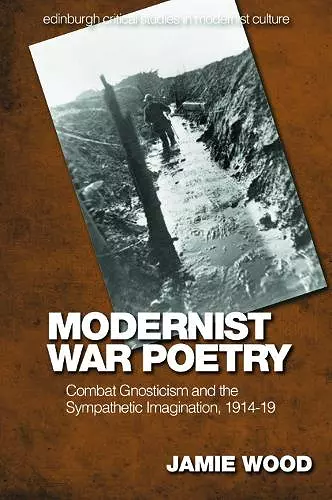Modernist War Poetry
Combat Gnosticism and the Sympathetic Imagination, 1914–19
Format:Hardback
Publisher:Edinburgh University Press
Published:10th Jan '23
Currently unavailable, and unfortunately no date known when it will be back

This study examines the work of the principle architects of Anglo-American modernist poetics – T.S. Eliot, H.D., Ezra Pound, Gertrude Stein, Edward Thomas and Wallace Stevens – and their response to the challenge of combatant war poetries. It argues that these civilian poets sought to negotiate directly with the combatant’s gnosticism, specifically with the combatant’s assertion that only those present at a catastrophe could properly represent its horrors. The modernists rightly identified that gnosticism was a threat to their own representational claims on an increasingly traumatic modernity. How was the imagination to be salvaged in order that it could still feel into the wounded experience of others? In response to this challenge, the modernists drafted their own imagined war poems, developing in the process several different and contradictory poetic systems. Whereas scholarship ordinarily tells the story of intra-war modern poetry as a series of different schools – the trench lyric, the home front elegy and the modernist long poem – each moving in a different direction, this study brings those traditions back together into one history by treating them as idiosyncratic responses to the same aesthetic problem.
This book is literary scholarship at its very best. The research is immaculate, the thinking profound and the style masterly. It magnificently illustrates developing poetic thought in relation to the First World War, experience and the imagination, guiding the reader authoritatively through the months of 1914 to 1920 to produce a brilliant micro-literary history. -- Kate McLoughlin, University of Oxford
ISBN: 9781474497749
Dimensions: unknown
Weight: unknown
272 pages